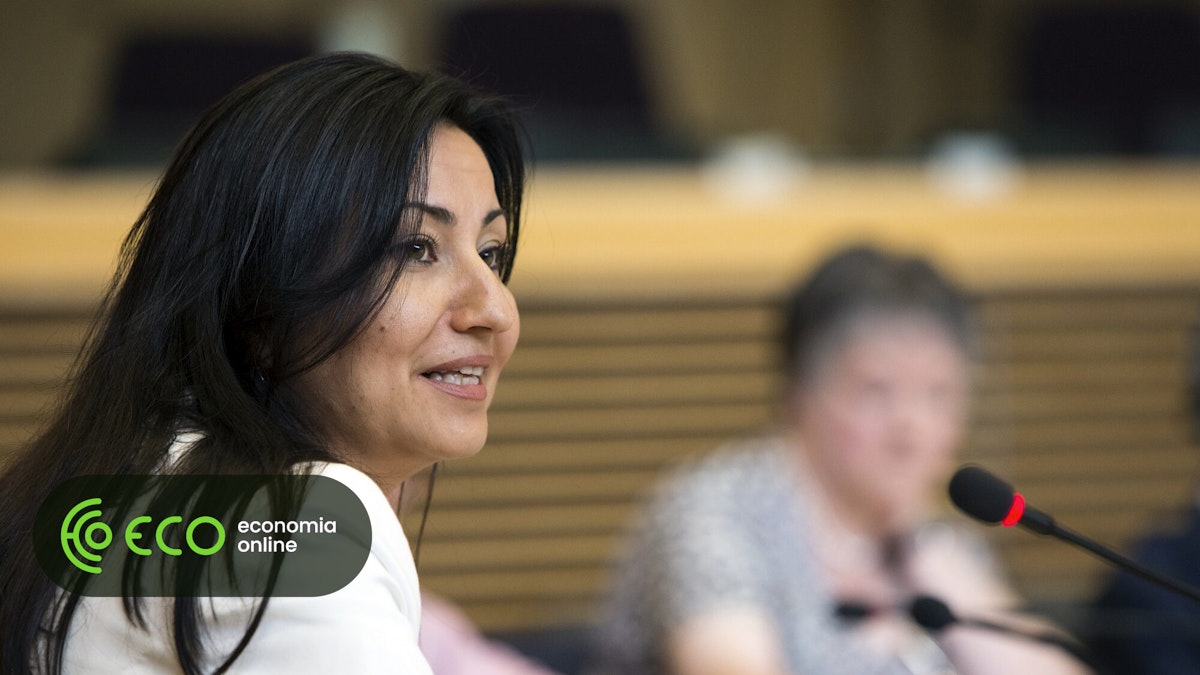“Portugal is more than a decade behind in investment” in science, notes Marcelo | Innovation
The moment was one of ceremony and awards: researcher Gonçalo Correia received the Vencer o Adamastor Prize for a project in the field of artificial intelligence. Present at this delivery, Marcelo Rebelo de Sousa took the opportunity to draw attention to a “Adamastor” in the country: “Portugal is more than a decade behind in terms of investment in research and development.” The President of the Republic was referring to the fact that in Portugal research and development comprises around 1.7% of GDP and that, already in 2013, the European average was around 2.6% of GDP invested in research and development (R&D ). This delay is a “Northwind” that has to be won.
But Marcelo Rebelo de Sousa was not the only one to mention the “Adamastor” of the science funding problem. When awarding the prize, Luís Ferreira, dean of the University of Lisbon, focused precisely on this issue and explained the need for investment. “Science takes time, it needs its own time and continued funding,” he noted. “It is not done [dar] millions [de uma só vez] and the next three years there is not. This is deadly for science and we have experienced this environment a lot in Portugal, sometimes we have plenty and use it, sometimes we go through years of hardship in a row.”
Luís Ferreira never tired of emphasizing that science considered a slow environment, “an environment of meditation”, which is a word that originally comes from the Greek and that etymologically means “to make honey”, he noted. “Making honey is taking the little things, metabolizing them before putting them back out and giving them to others,” he reflected. “Science is done as honey is made, with that necessary time and which cannot be interrupted by a fire that burned that whole area [onde estava uma colmeia] or by an absence of funding.”
For this very reason, he expected the challenge of looking at the funding structure of the Foundation for Science and Technology (FCT): “When we look at human resources and what is called ‘international relations’, they account for more than 50% of the budget and projects have 17%. It is exactly the opposite of what we had in the 90s, when we took the big leap in terms of research.” The rector of the University of Lisbon proposes that this logic be reversed, again.
Guillermo Vidal
Marcelo Rebelo de Sousa thanked precisely part of his intervention to address the issue of funding in science. Earlier, he noted the evolution in the country: “In recent decades, with regard to science and education, Portugal has tried to walk a path in the right direction, with perseverance and which has led us to outstanding results.” One such result concerns the employed population with higher education, which is already more than 30% of the population.
However, more than just observing this “quantitative explosion”, which began with the democratization of Portuguese society in terms of access to higher education, the President of the Republic noted: “It is much more important to invest in science and fundamental research; I think of the Government and I think of companies.”
Marcelo Rebelo de Sousa thus launched a challenge to the country and accepted that it be “more daring, more determined, more demanding, more competitive, in relation to itself”, raised to retain highly accredited people. How to get all this? One of the tools will now be the effective implementation of the Recovery and Resilience Plan (PRR). “This is a unique opportunity that our country has access to.” But this should not be the only reference for increasing investment in science: “The indicative expenditure in the PRR for R&D, of at least 2% of GDP until 2025, does not reflect a strong investment in science and research and does not keep up with the needs of the times. current. You need to look at the [quadro comunitário de apoio] Portugal 2030 and ensure the sustainability of science funding.”
Another “Adamastor” won in the room was what the host of the award did with his project. Himself Gonçalo Correia metaphorized that he tried to beat an Northwind by “taking neuronal models and trying to make them both more transparent and more compact and efficient and it was done through sparsity”.
The Priberam researcher was hoping for a new method to make machine learning models more compact and efficient. For now, Gonçalo Correia says that his work has already had effects on articles that have developed more sparse methods, focused on the transparency and efficiency that this brings. He also said he hoped it would bring contributions to more responsible artificial intelligence, which has a smaller ecological footprint, as well as more transparency. “I hope that many of the new models with more responsibility will be created in the Center for Responsible AI consortium, now in Portugal.” This is one of the world’s largest responsible artificial intelligence consortia and Portugal has recently joined.
Combating Northwinds
This was the first time this award, which resulted from a partnership between the Institute of Systems and Computer Engineering (Inesc) and the newspaper PÚBLICO, was delivered. And the name was not in vain, as pointed out by Arlindo Oliveira, president of Inesc: “About four decades ago, Inesc, at the time a newly created initiative by José Tribolet and João Lourenço Fernandes, conceived the motto ‘beat Adamastor’ .”
In the 1980s, the creation of this institute had the “objective to precede the chronic backwardness of the country in areas such as science, technology and education”, stated its current president of the century. “In this case, the ‘Adamastor’ was the underdevelopment monster that characterized a country that featured prominently at the tail of Europe in many scientific and educational indicators. The model proposed by Inesc, of non-profit private institutions dedicated to the development of science and technology and innovation, came to fruition in Portugal.”
Today, highlighted Arlindo Oliveira, the “country has a solid scientific science system and many of them inspired by the Inesc model”. And he gave as an example some of the current accomplishments of the Portuguese: scientists publish in the best scientific journals or compete for the most competitive programs of the European Commission.
Guillermo Vidal
The terrain of science is, after all, conducive to combating Northwinds. “Science wins Northwinds every day”, also pointed out Rogério Colaço, president of Instituto Superior Técnico. “Adamastor represents danger, difficulty, threat, the unknown. Discovering is just coming to know the unknown and making the unknown known. Winning the big, misshapen monster – the Adamastor – is nothing more than overcoming the fear of the unknown. What is the design of science and who does it, scientists and researchers.”
The “Adamastor” of underdevelopment cannot be defeated alone and, throughout the award ceremony, there were several interventions that highlighted the role of PÚBLICO in the fight against this “monster”. One of the statements was precisely that of Manuel Carvalho, director of the newspaper: “Since its foundation, we understand PÚBLICO not only as a newspaper that has the duty to provide a public service in the area of information, but also associates itself with all causes that in a clear, unequivocal and positive way it is alongside what are the great designs of the national interest”, he said about the partnership with Inesc for this award. Science is one of these and, therefore, the newspaper has been highlighting science journalism in the country: “We have a long tradition in science journalism in Portugal. We are the only newspaper that has a nationally recognized science section.”
The same was noted by Marcelo Rebelo de Sousa, noting that PÚBLICO, in its own way, also wins every day Adamastores and stressed: “It is extraordinary to see that it has a section dedicated especially to science and the environment, giving a central role to knowledge , education, qualification and innovation.”




